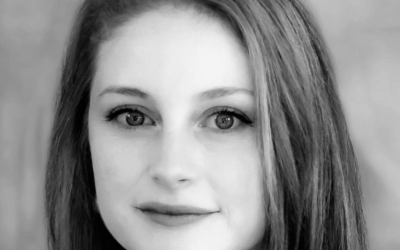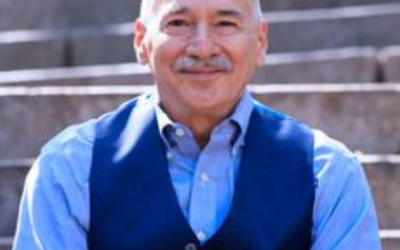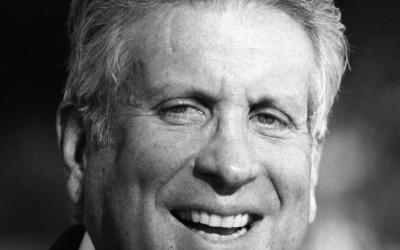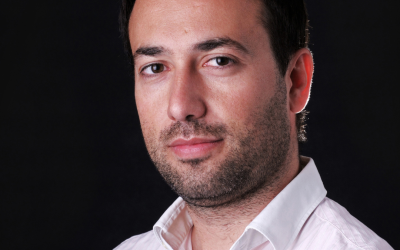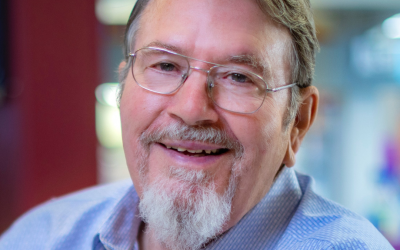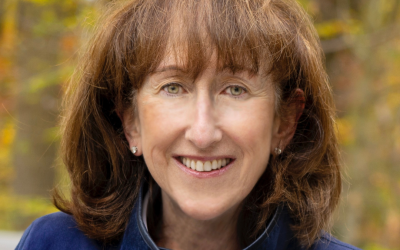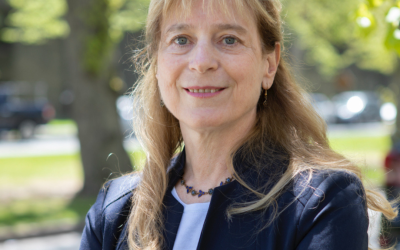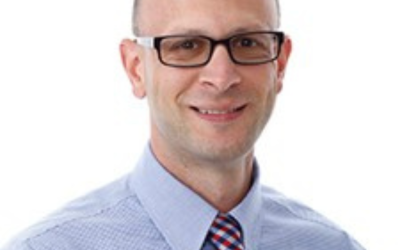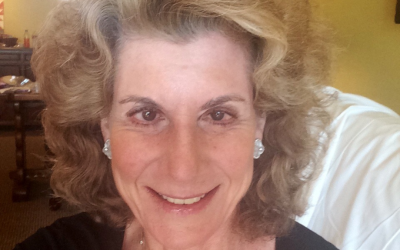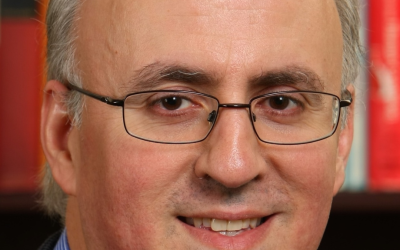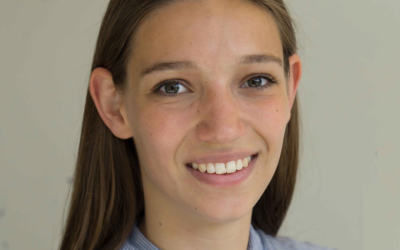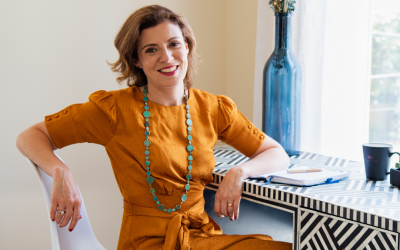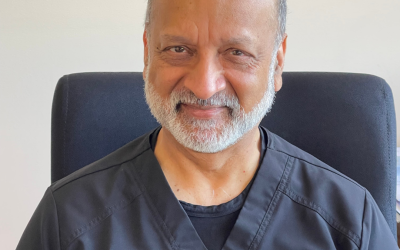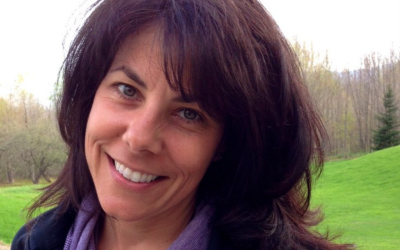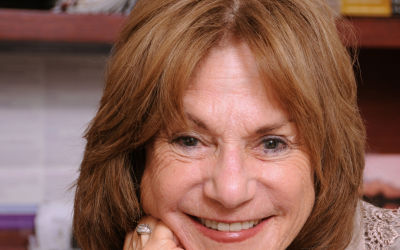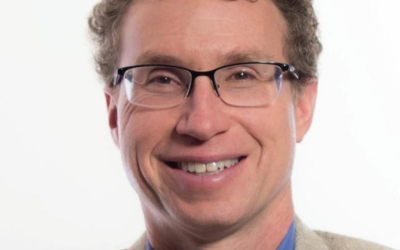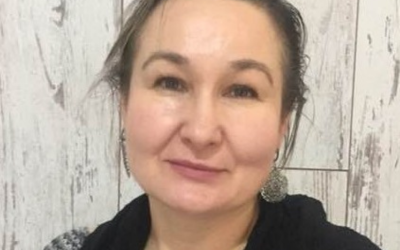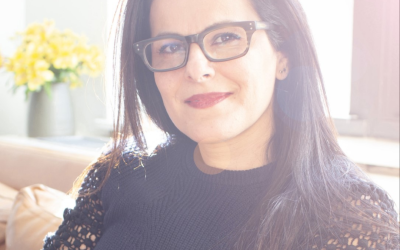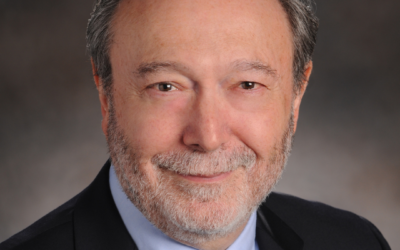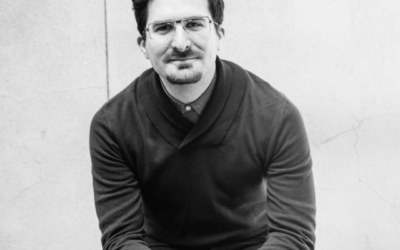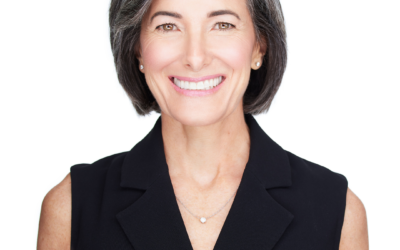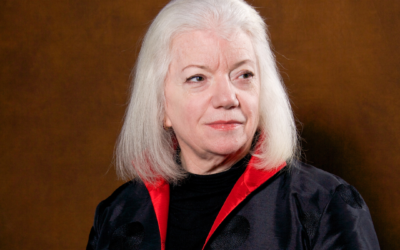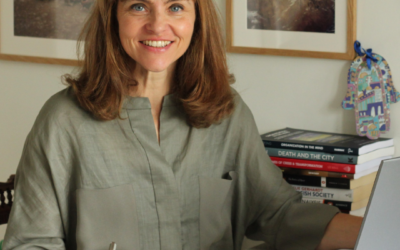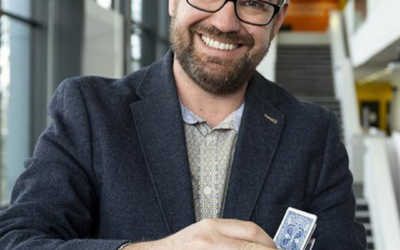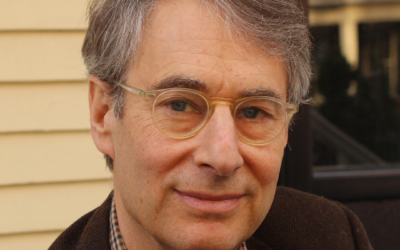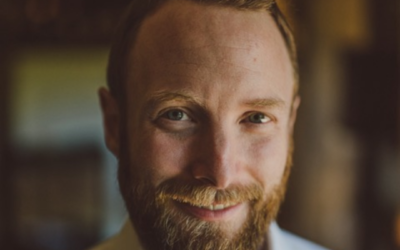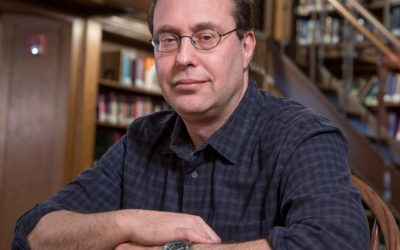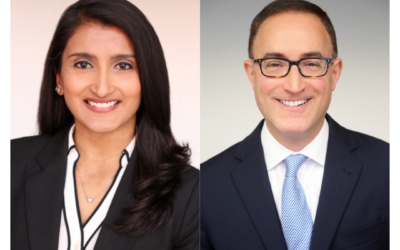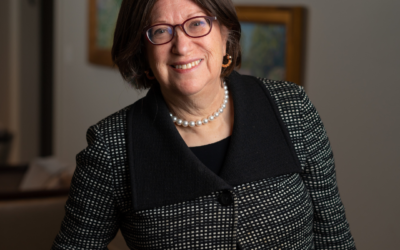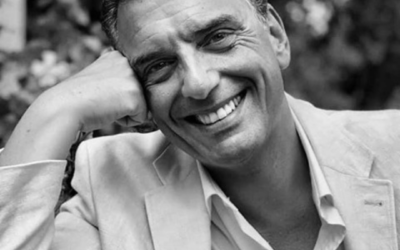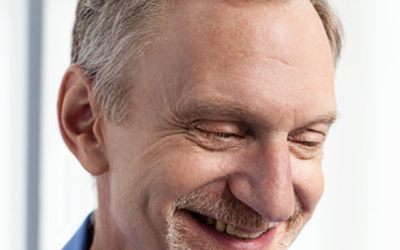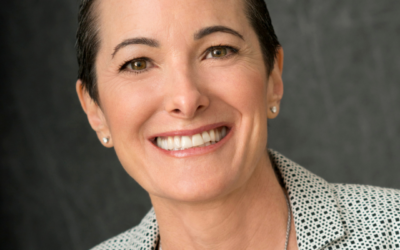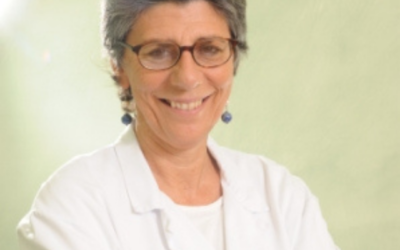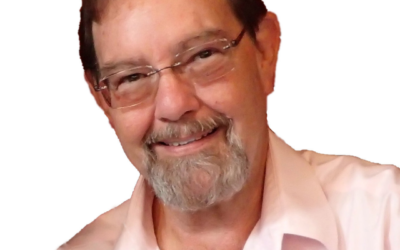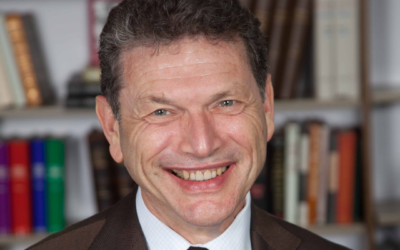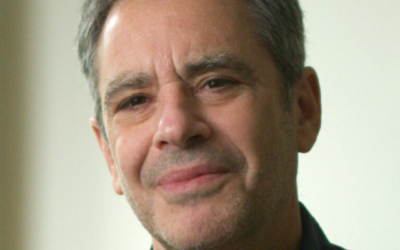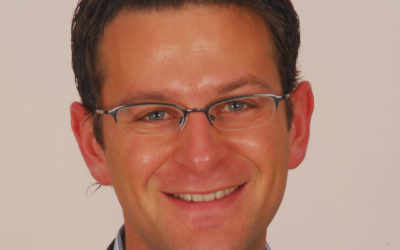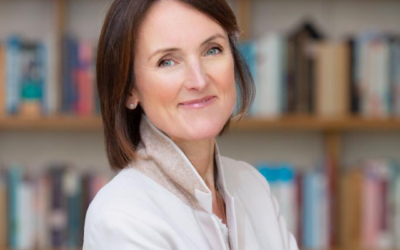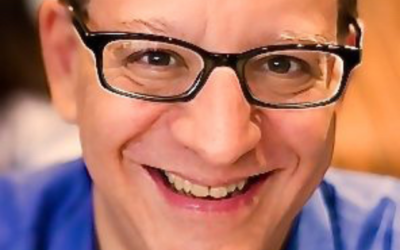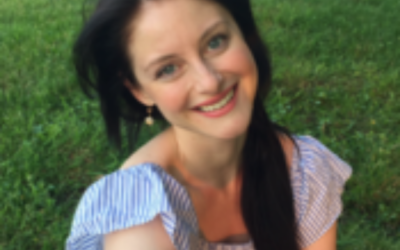the mind, body & soul in healing podcast
episode archives
The Mind, Body & Soul in Healing podcast will introduce our listeners to clinicians and researchers who are working at the cutting edge of healthcare.
Episode 44: The Mommy (and Daddy) Brain Controversies: Adaptation not Deficit with Bridget Callaghan, PhD
"We trained pregnant and never pregnant women and we tested them on their memory for these items immediately after they learned them and then we tested them two weeks later, looking at their long term autobiographical memory. What we found was that for...
Episode 43: Two Psychiatrists Face the Illness of Their Daughter with Philip Lister, MD (New York)
"The universality of guilt - I think that my life as a child therapist has a lot of advantages; we carry the idea that ‘we are all the ages we've ever been’ and those magic years never disappear. There are some great things about that - there are some...
Episode 42: Stigma: How Support Groups for Mental Illness are Helpful with John Tamerin, MD
"Because I couldn't help my son, I couldn't do anything for him, I thought maybe I could start this group and help other people and other parents deal with this problem. What I wasn't prepared to face was just how lonely, how alone, how sad, and feeling hopeless I...
Episode 41: How Rituals Attach Us to Our Communities with Dimitris Xygalatas, PhD
"If you randomly assign people into two groups and you give them different insignia or you have them go through different practices, they come to like each other more. It’s very easy to create this basic sense of belonging and identity. Ritual is particularly good at...
Episode 40: Might Rapamycin Extend Our Lifespan, Healthspan, and Cognitive Functioning? with Arlan Richardson, PhD
"One of the things that is very exciting is that this is a very robust finding. In other words, sometimes in science people see something and then it's not replicated - Rapamycin’s impact on lifespan has been replicated. When I started researching this...
Episode 39: An Analyst’s Novel: Resilience in the Face of a Mother’s Death with Kerry Malawista, PhD
"One way a child of Jody’s age deals with loss is that you don’t miss the person, in a sense you can become them. So, I have her step into the mother role, immediately trying to look after the younger ones and then wearing her mother's sunglasses - it’s...
Episode 38: Bipolar Disease, Insulin Resistance and Metformin: New Research with Cynthia Calkin, MD
"The best way to think about insulin resistance is that it’s pre-diabetes. In the course of developing type 2 diabetes, which we see in much higher rates in people with bipolar disorder compared to the general population, one starts off with normal blood sugar...
Episode 37: The Value of Paternity Leave for Children and Families with Richard Petts, PhD
"When paternity leave comes into the picture you have a situation where parents are home together. Those processes are able to develop for both the mother and the father - there’s time for fathers to bond with their children, there’s time for parents to figure...
Episode 36: The Role of Technology in Mental Health Care with Isaac Galatzer-Levy, PhD
"There is a company called NightWare, that developed a feature for PTSD that uses components from Apple Watch. One of the primary symptoms in PTSD is intense nightmares which are very distressing, they disrupt their sleep and really drive a lot of...
Episode 35: Disability, Psychotherapy, and Resilience with H. Penny Mishkin, MS, OTR
"I would say to any parent who has a child now or any adult who has a disability now - disabilities are looked at quite differently. They are accepted much more than they were when I was growing up. So, you can’t take things out of context, but I was just...
Episode 34: Short Term Dynamic Psychotherapy for Physical Symptoms with Allan Abbass, MD
"Someone comes in and they are having these fainting attacks and neurological symptoms. They develop different anxiety channels, and the first goal is to help them be able to identify and feel their emotions and not have anxiety. Before getting there, we help...
Episode 33: Probiotics Added to Antidepressants Improve Outcome: New Preliminary Research with Anna-Chiara Schaub (Basel, Switzerland)
"We have those two groups with the probiotics and the placebo. The patients were allocated to the two groups and it was double-blind so we didn’t know if they took the probiotics or the placebo. They took it for four weeks and we did the assessments before the...
Episode 32: Does Religious Commitment Improve Academic Performance? (Sometimes) with Ilana Horwitz, PhD
"How does religion matter here? The reason that kids who are religious ‘abiders’ end up having an academic advantage, especially in the working class and the middle class, is because their grades are so much better in the middle and high school years...
Episode 31: A Physician with Metastatic Cancer Takes Psilocybin with Pradeep Bansal, MD
"I don't think anybody can truly describe the [psilocybin] experience. One can use phrases and words that are common - ineffable, mystical, powerful. All I can say is it was the most powerful experience of my life that I have gone through ever." "We had...
Episode 30: Babies’ Laughing and Joking: When and Why with Gina Mireault, PhD
“That was actually Darwin's hypothesis in observing his own son and he writes about this in “The Expression of the Emotions in Man and Animals.” He writes about this incipient laughter – he was the first one to recognize this as a built-in response...
Episode 29: Mothers, Daughters, and Food with Judith Rabinor, PhD
"All Jenny knew was that she wanted to lose weight. One of the things I say to people when I teach about eating disorders is ‘treating eating disorders is all about food and not at all about food’. It is not at all about food, there is always an issue,...
Episode 28: The Neurology of Religious Belief with Andrew Newberg, MD
"If somebody was to say a prayer to Jesus versus say a prayer to Allah versus say a prayer to Vishnu - in some sense that is going to be a similar kind of process in the brain. They are repeating certain words directed towards some higher power in their...
Episode 27: A Conversation with Ukrainian Psychoanalyst Oleksandra Mirza
“We understand that we are not alone. It is crucially important to feel like that because we are a large country compared to other European countries – we are the largest country in Europe and have 45 million population. But in comparison to Russia it is very...
Episode 26: Intergenerational Secrets and their Discovery in Psychotherapy with Galit Atlas, PhD
"There is a very close relation between being known and knowing others and allowing others to know us. When somebody goes to therapy, it usually impacts everyone around them in many ways. We can say it challenges relationships. It does many things. But...
Episode 25: When Someone You Care About Has an Eating Disorder with Judith Brisman, Ph.D.
“When someone is disordered in their eating often what you find is that they’ve been a kid who has learned to have radar for the feelings of other people. Whether it’s a family where the kid can’t express their emotions and parents’ emotions rule, that...
Episode 24: Polyvagal Safety, Sociality, and Health with Stephen Porges, PhD
"Polyvagal theory at the simplest level emphasizes that we have a physiological system, and the autonomic nervous system mediates how we react and respond to the world. When our autonomic nervous system is calm it supports our bodily functions. It also...
Episode 23: Psychedelic Psychotherapy for PTSD: New Research with Ingmar Gorman, PhD
"[during the MDMA experience] at around 45 minutes they may notice a shift where the anxiety dissipates and there is a sense of opening, a sense of feeling ok, maybe more than ok, maybe feeling a little bit blissful or positive. One study...
Episode 22: The Challenges of Raising Adolescents with Erica Komisar
"To be able to contain, withstand and hold the aggression of your adolescents who push you away, you have to feel very secure - meaning that you have to feel pretty good about yourself as a parent, that you have given them everything, that...
Episode 21: Oxytocin, Love and Developmental Trauma with Sue Carter, PhD
"There's this kind of dance between biology and this little molecule that gave us the capacity to take care of our infants by feeding them directly. That gave us tremendous freedom - we didn’t need a nest so we were able to wander the planet. We could...
Episode 20: The Psychology of Coaching: Working with Global Leaders Under Intense Pressure with Rachel Ellison
"Coaching is asking. It’s even better when you don’t know how to do that person’s job because they work in a different industry to you. All you can do is ask and that is pure coaching. It’s an 80-20 ratio of speaking to listening - 80 percent of...
Episode 19: The Psychology of Magic and its Use in Wellbeing with Gustav Kuhn, PhD
"As cognitive psychologists we are very much interested in these unconscious processes. Most of the processes that are involved to create your reality you are not consciously aware of. There are more computations that happen in our unconscious...
Episode 18: Listening and Prozac: Integrating Psychotherapy and Medications with Peter Kramer, MD
"I write a lot about stuckness - it’s not just how bad the thing is but whether it’s changeable and flexible - whether the patient is at least occasionally able to get out of that perspective and see things differently. For patients who are really stuck,...
Episode 17: What is the Placebo Effect and How Can it be Harnessed? with Joe Kossowsky, Ph.D.
"We used [open-label placebo] in kids with Irritable Bowel Syndrome and the interesting thing about these patients is that they were only allowed to enroll in our study at Boston Children’s if all other treatments had failed. Basically, we had a...
Episode 16: History and Culture Matter for Depression with Jonathan Sadowsky, PhD
“[Springsteen's book] is about rock and roll; it’s about the joy of music; and it’s about clinical depression. He weaves these together and Springsteen is not only a great example of how someone can live a creative life while enduring this kind of...
Episode 15: Varieties of Attunement and the Spectrum with Edward Brodkin, MD and Ashley Pallathra, MA
"The first pillar is relaxed awareness - we talk about it as the fundamental state of mind and body that is the basis of attunement. Listening is the taking in of cues and information from the other person. Understanding is cognitively processing and...
Episode 14: Breathing, the Vagus Nerve, and Compassion with Patricia Gerbarg, MD
"In infancy and childhood the autonomic nervous system is going through developmental stages just as with any other aspect of development. The quality of the engagement and the closeness with the caretaker has a big effect on how the autonomic...
Episode 13: Therapeutic Approaches to Chronic Pain with Michele Cohen, LCSW
"I play [piano] regularly with a violinist every Wednesday night - my violinist comes with her student to my house and we play two violin and piano duets first. Right now, we are working on the Franck Sonata and it is so much fun! It is so great and I am so...
Episode 12: Hoarding and Psychotherapy with Stelios Kiosses
"If you discard an item that a compulsive hoarder is attached to — it could be an empty box, a tin, or something that you and I probably would think: “This is useless and needs to be recycled or thrown away” — now if you throw that particular item away, that...
Episode 11: Zen and Psychotherapy with Robert Waldinger, MD
"It's not a good meditation when you are having fewer thoughts, it is not a bad meditation when you are having more thoughts or wilder thoughts. Really what Zen talks about is the limitation of just focusing on thoughts. Most of the time we are lost in our...
Episode 10: Managing Separations from Your Young Child with Erica Komisar
"Any separation, no matter how short the separation, requires a moment of reunion and repair. If you disregard the importance of that reunion and repair, collectively that starts to do great injury to that baby. Every time we have those missteps it is really important...
Episode 9: A Gynecologist / Psychoanalyst Treats Amenorrhea with Claudia Spadazzi, MD
"She first came to me for the amenorrhea - she was sent to me by a gynecologist colleague. The menstrual problem was solved in the first five months and then everything was fine from that point of view. But from the eating disorder, stress,...
Episode 8: A Psychotherapist Struggles with New Motherhood with Andy Cohen
"Buried inside of us are all these layers and layers of selves, like a Russian nesting doll, and the baby self fits inside all the different ages of you. In my experience of being in this kind of therapy I was starting to get to know all the unresolved thoughts...
Episode 7: Psychobiotics and the Future Treatment of Depression with Scott Anderson
"I'm not saying this is going to cure your depression, but I am saying that it stands a good chance of fixing up your gut, and if your depression is gut-related this could have a big impact on you. This could be a big explanation for the worldwide epidemic of...
Episode 6: How to Raise a Loving and Creative 30-Year-Old: Findings from Research with Nathan Szajnberg MD
"When you look in the background of the Mona Lisa you see how much attention the artist paid to the landscape - it’s at a certain horizon, the left horizon is higher than the right horizon, it’s interesting. The parents and the family are the landscape...
Episode 5: What is Dynamic Psychotherapy and Does it Work? with Jonathan Shedler, PhD
Episode description: We discuss the generic nature of the term 'psychotherapy' - how it refers to a large number of different clinical encounters. We focus on the unique properties of dynamic psychotherapy, a treatment that focuses on the repetitive...
Episode 4: Can We Really Prevent Alzheimer’s Disease? with Richard Isaacson, MD
Episode description: "What we do is meaningful, it's real, our effects are real. I can say that now. We still have people that read our studies and say: ‘This is random...It does not do anything … It is not possible…’, but it is, it really is. You...
Episode 3: A Psychotherapist Shares Her Phases of Love with Juliet Rosenfeld
Episode description: "If we spoke about his illness it made it more real. Of course he did know, he must have known what the prognosis was for his illness - ultimately for 100% of the kind of lung cancer that he had, it was fatal. I also think he feared that if he was...
Episode 2: Psychedelic Medicines in a Therapeutic Context with Jeffrey Guss, MD
Episode description: We discuss the history of plant medicines over the millennium as well as the recent research into their medical benefits that took place in the 1950s and 60s. We review the current studies on the role of psychedelic therapies with cancer related...
Episode 1: The Microbiome in Child Development with Bridget Callaghan, PhD
Episode description: We discuss the paradigm shift that is taking place throughout medicine in appreciating the central role that the microbiome plays in many diseases. We review the animal research on the impact of the gut bacteria on the development of depression....

